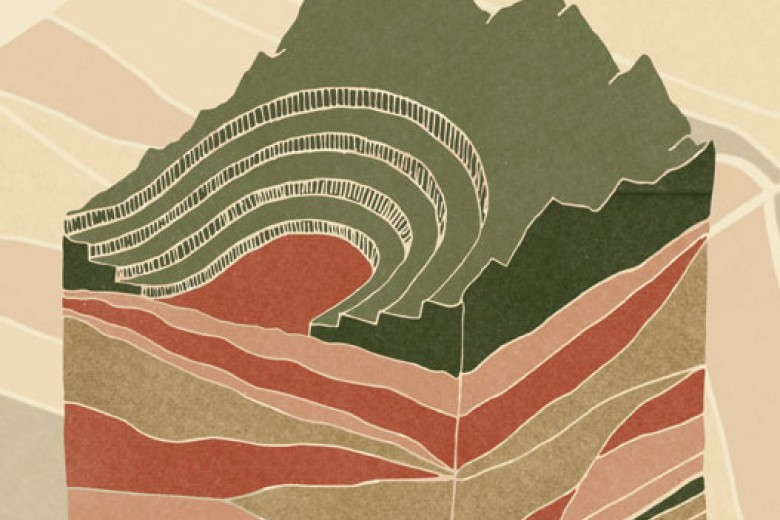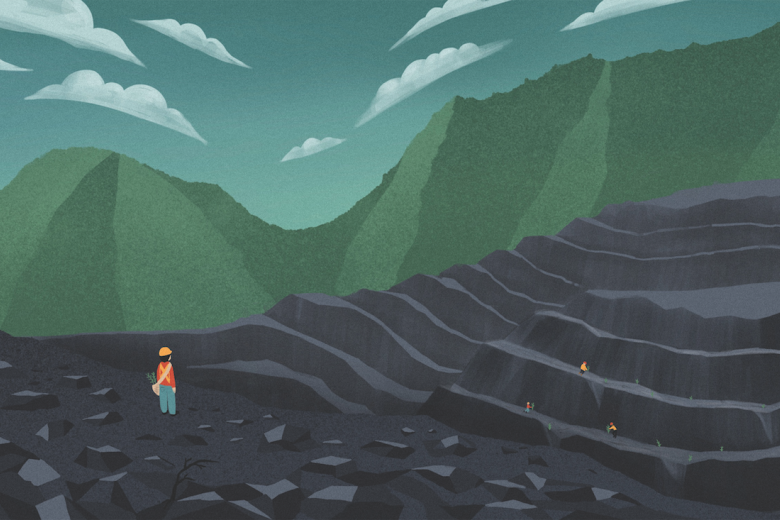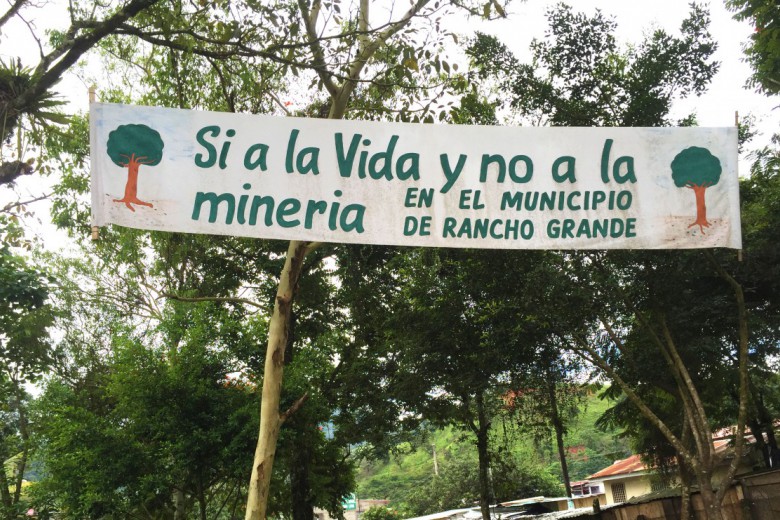On a spring day at the end of April 2023, Leena Badri’s phone lit up: her university administration had put out a statement on the war in Sudan.
The war had started two weeks prior, and Sudanese students and faculty at the University of Toronto were spread thin. Every day they spent hours messaging family and friends back home and sending money for supplies. Some delayed their degrees to support their community, incurring additional tuition fees.
Badri opened the statement hoping for some support and details about how the university would accommodate Sudanese students and support those fleeing the war. She was soon disappointed. Vice-president Joseph Wong expressed his “concern and sympathy for those affected by the war in Sudan,” but offered no meaningful assistance to affected students and staff, or to people in Sudan. Everyone was expected to carry on as usual.
So, in July 2023, Sudanese students and faculty started organizing. Badri met up with a professor and a couple of other Sudanese students to support each other and be in community with other people who understood the immense sadness consuming them. But they also sought to channel those emotions into action and formed the Sudan Solidarity Collective (SSC) – a group dedicated to organizing against the war, providing financial support to organizers in Sudan, and pushing back against the University of Toronto’s discriminatory policies.
Briarpatch sat down with the collective to discuss their organizing, Canadian complicity in the war, and how organizers can get involved in anti-war organizing.
What role does Canada play in the war in Sudan?
The Canadian government has a long history of allowing Canadian companies to profit from and fuel the conflict in Sudan. For example, in 2019, Canadian lobby firm Dickens & Madson Inc. signed a US$6-million deal with the Rapid Support Forces (RSF), a paramilitary group at war with Sudan’s army. The company agreed to do their best to “ensure favourable international as well as Sudanese media coverage” for the RSF. The firm was also contracted to find oil investors and oil extraction equipment for the paramilitary force.
The RSF is also being armed by Israel, one of Canada’s closest allies. Israel wants to make sure that whichever party wins maintains normalization with Israel’s settler colonial state, even if that means propping up a non-democratic regime that represses its people.
Dickens & Madson Inc. is far from the only company getting away with fueling the war. In 2012, Canadian-owned firm Streit Security Vehicles was found to have sent 30 armoured vehicles to Sudan, breaching the UN arms embargo. The client was listed as the “Sudan Police.” Another example is Lundin Oil (under the Lundin group), an oil and mining company that has been charged with aiding and abetting war crimes between 1999 and 2003, during Sudan’s civil war, due to its operations on the ground. Lundin group’s Canadian subsidiary International Petroleum Corporation (IPC) operated from 1997 to 2017 as Lundin Oil following a merger with Swedish company Sands Petroleum. In 2017, IPC split into its own company under the Lundin group once again. To this day, none of these companies have faced repercussions from the Canadian government for their roles in the war.
Canada also takes a passive role on the international stage. Canada hasn’t condemned the armed groups prolonging war or the states supplying them with ammunition, such as the United Arab Emirates which has been supplying the RSF with weaponry and financial support.
The RSF is also being armed by Israel, one of Canada’s closest allies. Israel wants to make sure that whichever party wins maintains normalization with Israel’s settler colonial state, even if that means propping up a non-democratic regime that represses its people.
In February 2024, the Canadian government opened an immigration pathway for Sudanese Canadians to sponsor their relatives in Sudan. What are your thoughts on the pathway and the application process?
Canada is accepting far too few applicants. Over 7 million people have been displaced and millions are at risk of starvation, yet Canada is accepting a maximum of 3,250 applications from Sudanese Canadians trying to get their families into the country. In contrast, Canada has welcomed approximately 298,000 Ukrainians since Russia’s invasion of Ukraine in 2022, and approved roughly 962,600 emergency visas. This country has enough resources to support thousands more Sudanese refugees in finding safety and reuniting with their families.
And even if those in Canada manage to obtain those documents and can prove they have the financial resources to support their relatives, the process has been very slow to roll out. None of the collective’s family members has successfully made it to Canada, and we have not heard of anyone else making it either.
The government’s requirements, process, and fees are unrealistic and are creating additional hurdles to bring Sudanese people to safety. They are in a war zone and government ministries aren’t running so it’s very difficult for people to get the paperwork and biometrics the Canadian government is asking for. Before the war broke out, Badri’s aunt had to travel to Egypt to get her paperwork, and that kind of travel has only become more difficult since the war and the telecoms blackout in February 2024.
There’s also a steep cost to apply. The “anchor family member” in Canada needs to prove that they have a minimum of $9,900 to sponsor one person and $14,950 for two people. The amount increases for each additional member. Sudanese Canadians are already financially stretched as we have been supporting our families and communities in Sudan since the start of the war.
And even if those in Canada manage to obtain those documents and can prove they have the financial resources to support their relatives, the process has been very slow to roll out. None of the collective’s family members has successfully made it to Canada, and we have not heard of anyone else making it either. Elected officials don’t expect anyone to make it to Canada until the end of 2024.
How does SSC support organizers on the ground in Sudan?
We created the Sudan Solidarity Fund to provide consistent funding for Emergency Response Rooms (ERRs) and other grassroots groups like resistance committees and labour and farmer unions. ERRs have been doing critical life-saving work in Sudan since the start of the war, though they have rarely been featured in mainstream Canadian media or mentioned by politicians. Some of their most important work includes setting up shelters and food kitchens, as well as medical assistance for displaced and vulnerable people.
ERRs have been doing the work of governments and international organizations for years and are a testament to the immense potential of organizing. They are entirely volunteer based and are composed of people from the communities they serve. The ERRs are also closely affiliated with the resistance committees who were the heart of the 2019 revolution that toppled dictator Omar al-Bashir. Organizers who are serious and committed to developing resilient and sustainable networks of organization should look to the structure of the ERRs as sources of inspiration and guiding frameworks for building mutual aid networks in their own communities.
Sudan is often dubbed “the forgotten war.” The last large-scale mediation efforts in which Canada played a role took place over a year ago, in May 2023. There’s been little action by Canadian politicians: Justin Trudeau hasn’t once tweeted about the war in 2024.
Since the start of war, ERRs have been able to reach more than 4 million civilians and evacuate over 12,000 people from areas with heavy fighting, according to the United Nations. The ERRs are the only group providing humanitarian assistance, as many aid agencies were forced to suspend programs in certain areas in Darfur and Khartoum due to threats of violence.
Since we began publicly fundraising in December 2023, so far, we have raised over C$100,000 for ERR-run communal kitchens in Khartoum, Darfur, Gireif, Omdurman, Kassala, and Port Sudan and over $20,000 for emergency medical supplies in Kassala, Port Sudan, and Khartoum.
But sending money has become more difficult since the telecommunications blackout started in February 2024. People in Sudan and ERRs had been receiving money mostly from local and diasporic Sudanese people’s donations through mobile apps, which is also how we’ve been sending funds. But the telecommunications blackout has made sending money into Sudan nearly impossible.
According to the Khartoum State ERR, 221 of the total 300 community kitchens in the state have been forced to suspend operations due to the blackout, including the Bahri Emergency Response Rooms which suspended operation of all their communal soup kitchens in February 2024. Further, ERR representatives have faced heavy state repression and illegal arrests, as the RSF and Sudanese Armed Forces both consider ERRs to be linked with the resistance against military rule.
What can organizers in Canada do to support the anti-war resistance and ERRs?
To create a sustainable stream of support for ERRs and push Canada to adopt more equitable immigration policies and an anti-war position, we need non-Sudanese communities and networks who might not even know about the war and humanitarian crisis in Sudan to join our movement. Sudanese people can’t do this alone – we need anti-war allies to support Sudanese people’s resistance.
We call upon our allies to amplify the work and updates from ERRs (check out @KhartoumKitchen, @Nas_Shagala, @BSonblast on X), join rallies and protests in their areas, sign our open letter and contact their elected representatives to demand that the immigration pathway be accessible to all Sudanese people regardless of family ties in Canada, and to remove the financial requirements and caps on immigration. We also urge our allies to hold fundraisers in their communities to support the Sudan Solidarity Fund. If you are interested in doing so, please get in touch and we can provide support!
We need to make noise, clog the streets, and stop business as usual to force our politicians to pay attention and meet our demands. Sudan is often dubbed “the forgotten war.” The last large-scale mediation efforts in which Canada played a role took place over a year ago, in May 2023. There’s been little action by Canadian politicians: Justin Trudeau hasn’t once tweeted about the war in 2024. We need to protest, speak up, and disrupt until the Canadian government has no choice but to end its complicity in the war, adopt equitable immigration policies, push for greater international effort to stop the war, and involve civilian groups in mediation efforts.
We will keep fighting until the war is over and the indiscriminate killing of civilians ends.


_1200_675_90_s_c1_.jpg)




